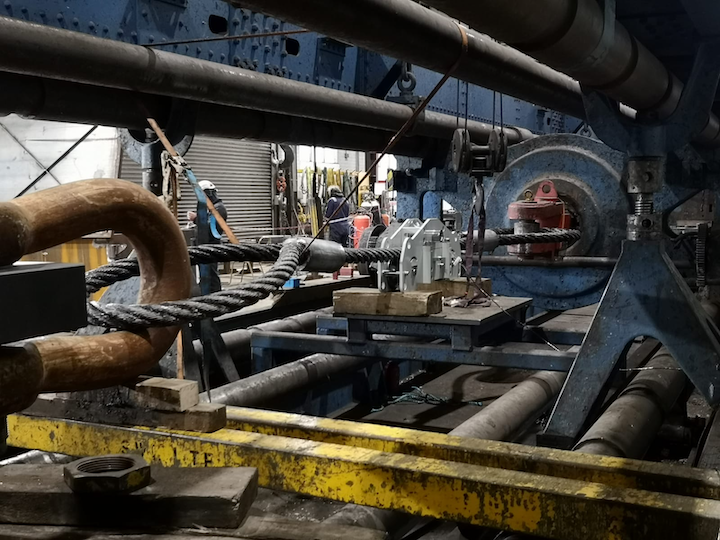Dynamic Load Monitoring (UK) Ltd. (DLM), of Southampton, UK has provided eight bespoke Running Line Monitors (RLMs) for Jan de Nul’s 236.8m-long Les Alizés, a next generation, 5,000t capacity floating installation crane vessel, currently being built in China.
DLM, a specialist in the design, manufacture, repair and calibration of load cells and load monitoring equipment, delivered the RLMs to NOV’s BLM division, which designs and manufactures ship and offshore equipment products. NOV-BLM presented DLM with a requirement for equipment to monitor the tension on mooring winches aboard the Les Alizés.

Jamie Woodcock, business development manager at DLM, said: “The initially-quoted working range was up-rated by the client. The calibration was also a challenge due to the high working load and proof load requirements. We tested to a safe calibrated load using wire rope, then proof tested the pin in a compression machine to simulate the resultant load the pin would see when in service. This negated the need for risky and potentially unsafe wire rope tests to this very high tension [5,000 kN].”
Woodcock added: “By enlarging the frame we could use larger wheels to suit the 76mm diameter rope. We also needed to up-rate some components for the higher SWL, but still maintained a high safety factor.”
Other standout features of the RLMs included maximum design speed of 30m/min up to 200t, 15m/min thereafter; proof load 1.5 x SWL, which equalled 5,625 kN line tension; and high repeatable accuracy up to the full working scale. The calibration process required multiple 76mm slings, as each RLM needed to have multiple runs. The equipment is powder-coated grey to the clients specific RAL reference, suitable for the marine environment with a working life in excess of 20 years. After sales support will also be provided as part of the contract.
Woodcock said: “The marine and renewables industry is very busy. Jan de Nul will likely utilize this vessel for construction projects, such as installation of large wind turbines offshore.”
DLM’s standard range of RLMs (15t, 60t, 200t) are designed specifically for harsh marine-type environments. Typically used in cable laying, towing, mooring and other winch operations to measure and record line tension, pay-out and speed. Their robust design make them the perfect line tension monitor for demanding offshore applications. Available in cabled or wireless configurations, they can be integrated into existing vessel systems, or supplied as stand-alone systems with individual or multi-input HMI displays, with touch screen and data logging capabilities.
Jan de Nul’s Les Alizés will be completed in 2022.










